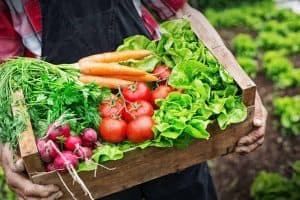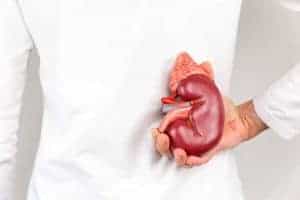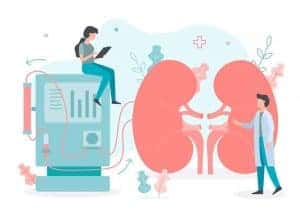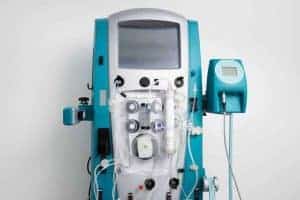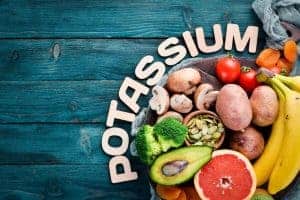
Seven Simple Home Remedies that can Help Stop the Progression of Chronic Kidney Disease (CKD)

The purpose of this article is to share some simple strategies that can prevent CKD leading to kidney failure and the need for dialysis. But to understand how to stop the kidneys from deteriorating, we first need to be clear about what CKD actually is…
“Kidney Disease” – Quite simply, the kidneys have become damaged and cannot perform their function of filtering the blood properly.
“Chronic” – this means the condition worsens over a period of time.
So, that is the bad news, but you already knew that, right? Well, the good news is that if we understand the causes and risk factors of CKD, we can then modify these, potentially even removing them from the picture… and in the process stop the progression of CKD!
Now, there can be many causes of CKD, but there are some conditions that can increase the risk of developing it or increase the risk of existing CKD leading to kidney failure. Even if you do not suffer any of these conditions now, developing one of the following conditions will put your kidneys under more pressure. If you do suffer from one or more of these conditions, or if you have a family history of any of them, it is even more important that you continue reading this article. So here are the big three risk factors:
- High blood pressure
- Diabetes (Type 1 or 2) or insulin resistance
- Heart disease
These are three of the most common health issues in developed countries today and are rapidly increasing in developing countries as well. What is even more worrying is that as well as becoming more prevalent, they are beginning to appear earlier in life.
Before I tell you about the remedies to stop the progression of kidney disease though, it needs to be said that all modern chronic diseases such as the ones listed above are largely preventable through diet, nutrition and exercise, and it is NEVER too late to make improvements to our behaviors around how we eat and exercise… but that is not what I want to talk about today.
It may be that your genetics, your current state of health, or your continued diet and lifestyle choices are predisposing you to these conditions, and this is certainly true for chronic kidney disease. In other words, having CKD means you are more likely to develop high blood pressure, diabetes or heart disease, but developing any of these conditions first can increase the likelihood of developing kidney disease if you are genetically predisposed. This goes to show just how important it is to use preventative strategies to avoid these common health complications.
Adjust your diet and lifestyle by all means! But there are extra measures you can easily incorporate into your daily life if you are serious about taking control of your health and preventing or stopping the progression of CKD.
I know how hard it can be to change habits, but it is likely that there are things you are doing in your daily life that are contributing to the risk of developing high blood pressure, diabetes and heart disease… after all, that is why these conditions are becoming so prevalent, because our modern dietary and lifestyle choices do not match our ancient genes.
We are always being told to add exercise, add medication, add supplements, add stress reduction techniques… all the changes are enough to cause more stress! So, to make it easier to adopt these remedies into daily life, I have researched the best ones that we can all use to REPLACE our current detrimental habits with ones that improve our health. You do not need to use all of these remedies every day, but next time you reach for a cup of coffee, make a conscious effort to replace it with one of the remedies I am about to share with you.
These are time proven, well documented, simple daily practices that will have you feeling better, strengthen your immune system, reduce inflammation and stop the decline of your health. When incorporated into a healthy diet and lifestyle, they can stop the progression of chronic kidney disease.
The Remedies
When you wake up, your body should be well rested, but it has gone around eight or more hours without any water! Hydrating your cells is the first thing you should do when you wake up. But there are simple ways you can turn a glass of water into a simple yet powerful remedy to nourish your body and support your kidneys.
Now we all know water is important, but when our kidneys are struggling, we do not want to add any extra pressure. Do not be in a hurry and do not feel you need to flood your body first thing in the morning. On a side note, please try to drink filtered water so that you are not adding any more chemicals or pathogens for your body to deal with.
1. Apple Cider Vinegar (unfiltered)
This is an age-old remedy that has regained some status in recent years. Many people have this in their pantry already; if not, it is widely available in health food stores, supermarkets and even some pharmacies. Make sure it is unfiltered though, as it is the cloudy sediment, also known as “the mother”, that provides the health benefits of ACV.
How to take it:
1 teaspoon of vinegar in 1/3 cup of water first thing on rising and up to three times throughout the day (preferably 10-15 minutes before meals, as this aids digestion as well).
What does it do?
- Warms and stimulates blood circulation
- Stimulates elimination of toxic wastes by the liver
- Improves digestion and elimination through the bowels, taking pressure off the kidneys
- Lowers blood sugar levels by improving insulin sensitivity – vital for preventing Type 2 diabetes
- Can regulate the appetite – this can help with weight loss or increased appetite in CKD
- Reduces cholesterol and triglycerides – major risk factors for heart disease
- Prevents and reduces blood pressure – a major risk factor in kidney disease
- Improves immunity and helps prevent infections
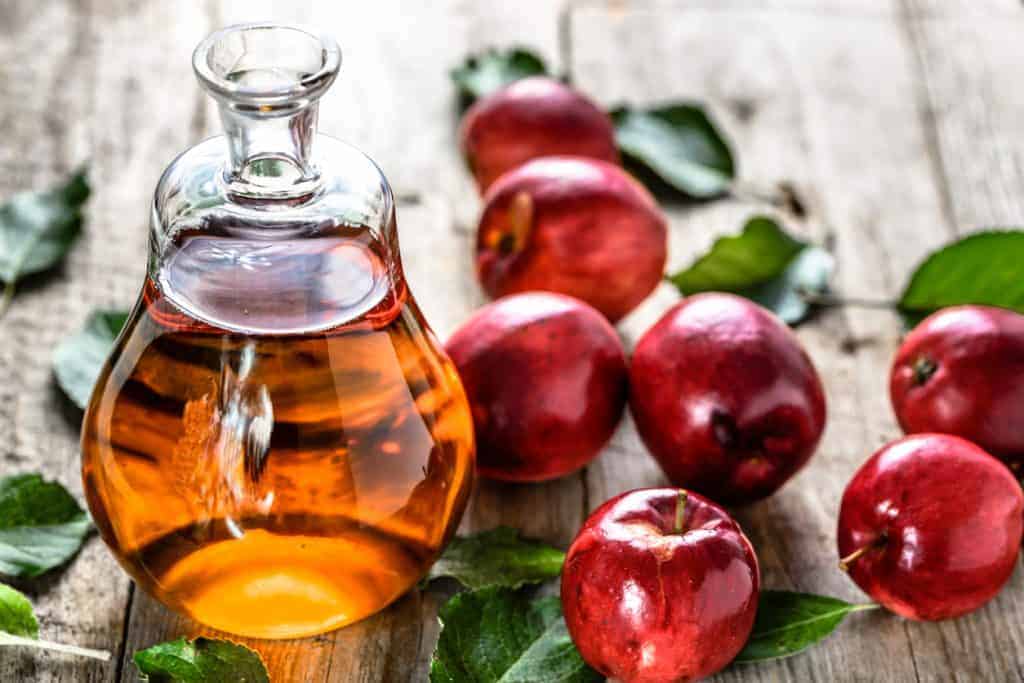
2. Bicarb Soda
Bicarb soda, or sodium bicarbonate, is a common household item that is found lurking in many pantries. It has a myriad of uses in the home, including as a non-toxic, abrasive cleaner. But it also has many health benefits, particularly for kidney disease sufferers. This is because sodium bicarbonate is actually produced by the kidneys and is used by the body as a buffering agent to keep the pH level of the blood stable. Unhealthy diets can throw this balance out, and in chronic disease states the pancreas and kidneys can stop making enough sodium bicarbonate to neutralise blood pH.
One important thing to keep in mind when taking bicarb soda is that it reduces stomach acid, which is why it is used in antacid preparations. For this reason it should be taken away from meals as low stomach acid can cause impaired digestion. Bicarb soda is a different product to baking soda so make sure you do not use baking soda by mistake, and try to source pure or pharmaceutical grade bicarb soda to avoid impurities.
Metabolic acidosis can be a cause or a symptom of chronic disease. It is vital for long-term health that we support our bodies to maintain normal pH levels. It is a good idea to buy some pH test strips from your local pharmacy to test the pH of your urine regularly. This will help you monitor the changes and also make sure your body’s pH is staying where it should be – ideally from 7.0 – 7.4.
How to take it:
½ to 1 teaspoon in ½ cup of water once or twice per day, at least 1/2 hour away from food. If you are taking medication it is best to get advice as to how often you should take bicarb soda.
What does it do:
- Restores the body’s pH balance
- Has antiseptic, antifungal and antibacterial properties
- Can ease digestive complaints
- Studies have shown it can slow the progression of renal disease and in some cases even prevent the need for dialysis
3. Cinnamon, Turmeric and Raw Honey Morning Elixir
Cinnamon is truly a gift from nature for your health. Not only does it regulate blood sugar levels, but it also provides natural sweetness and pungency that can be used in both savoury and sweet dishes. It is the poster spice for “Food as Medicine”! From a kidney specific perspective, elevated blood sugar causes a reaction with enzymes and proteins in the body that create highly inflammatory AGEs (advanced glycation end-products). This is dangerous enough, but as the kidneys are involved in clearing these products, they become even more dangerous for CKD sufferers.
The incredible therapeutic properties of turmeric have been the focus of many studies over the last decade. According to a study published in the Journal of Nephropathology (2012), “Turmeric, a neglected Asian traditional drug, might re-emerge as remedy and/or preventive tool for various illnesses including different type of cancers, obesity, Type 2 diabetes, hyperlipidaemia, hypertension, CKD [chronic kidney disease] and ESRD [end stage renal disease], which are steadily increasing globally, claiming many lives and tremendous amounts of resources worldwide.”
How to take it:
- Juice of 1/2 a lemon
- 1/2 tsp turmeric
- 1/2 tsp raw honey
- 1/4 tsp cinnamon powder
- 1 cup warm water, or milk
Mix all ingredients together in a cup. The turmeric has a tendency to settle to the bottom, so continue to stir as needed, or alternatively use a shaker.
What does it do?
- Stabilises blood sugar
- Improves insulin sensitivity
- Regulates appetite and supports weight loss
- Prevents inflammation
- Protects against heart disease
- Warms and stimulates digestion
- Lowers cholesterol
4. Golden Milk
Turmeric is a pretty amazing spice with a long history… in fact it has been used for health and healing for thousands of years. Over the last few years a lot of research has been done into its health benefits, and the diversity and effectiveness of turmeric are quite astonishing. Where there is chronic illness there is inflammation, and this is where the golden spice really shines.
It has been proven to reduce inflammation in the musculoskeletal and digestive systems, as well as helping treat inflammatory conditions of the skin, respiratory and reproductive systems. I could literally talk for days about the health benefits of turmeric!
This simple home remedy, consumed on a regular basis, will provide antioxidant and anti-inflammatory benefits that help prevent the onset and protect from the effects of chronic illnesses including high blood pressure, high cholesterol and Type 2 Diabetes.
First of all make the paste:
- 1/4 cup of turmeric powder
- 1/2 teaspoon of ground pepper
- 1/2 cup of water
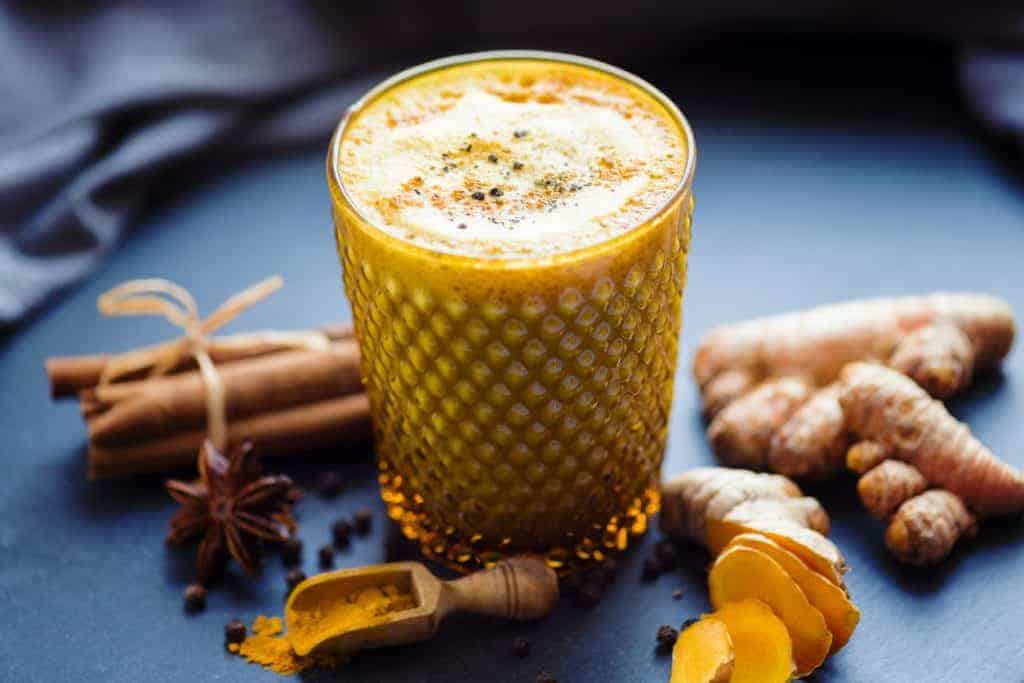
Add all ingredients to a small saucepan and mix well over a medium heat. Once it has cooled you can keep it in a jar in the fridge and use it as needed.
To make the golden milk:
- 1 cup of milk, or substitute with almond or soy milk
- 1 teaspoon almond oil, ghee or olive oil
- 1/4 teaspoon or more of turmeric paste
Combine ingredients in a small saucepan and heat until just below boiling point. You can add a small amount of raw honey just before serving if you prefer it a bit sweeter, but remember honey is three times as sweet as sugar, so you don’t need a lot.
What does it do?
- Reduces systemic inflammation in CKD
- Protects the cardiovascular system
- Helps prevent Type 2 Diabetes
- Corrects gut permeability, supports immune and digestive function
- Has an anti-clotting action, reducing blood pressure
- Reduces blood cholesterol
- Is a potent antioxidant, protecting against free radical damage to the cells
5. Salsa Verde
Salsa Verde literally translates to green sauce and has been made and used in various ways for around 2000 years all across the globe. The nice thing about this recipe is that you can adapt it to suit different dishes and tastes, but from a medicinal perspective the herbs, garlic and lemon are the heroes of the remedy. You may even find some of the most beneficial herbs growing in your garden. Make sure you are familiar with these before using them though, and please don’t use any herbs from your garden if you use weed killer!
Dandelion greens are a common garden “weed” with so many health benefits! These are known as a “bitter herb” for obvious reasons, but many people do not realise the bitter flavour is one of this class of herb’s greatest medicinal qualities. When mixed with other flavours the bitterness is balanced out, giving us the perfect balance of tasty and medicinal. Parsley, rocket (aka roquette or arugula), cilantro (aka coriander), chives and mint are all fantastic additions to this recipe that are bursting with antioxidant vitamins and minerals and medicinal properties.
Herbal medicine can have incredible benefits for the kidneys, but we do need to use them with caution in CKD as they can be too stimulating. Using them as food and traditional home remedies is much safer and provides many other benefits to the immune and digestive systems.
You can play around with the flavours, but here is a great recipe to begin with:
How to take it:
- 1 cup fresh flat-leaf parsley
- 1 cup of fresh basil leaves
- ½ cup fresh mint leaves
- 1 or 2 cloves of garlic
- 1 tablespoon capers
- ½ cup extra virgin olive oil
- Juice of 1 lemon
- Pinch of sea salt
Finely chop or process all ingredients and add to the lemon juice and oil, mixing with a spoon. Season with salt. It is best to use the salsa verde fresh to maximise the vibrant colour and healing benefits.
What does it do?
- Provides an abundance of antioxidant vitamins A and C, and minerals
- Garlic is a potent hypotensive spice, helping reduce blood pressure
- The anti-clotting action of vitamin K also supports reduced blood pressure
- Boosts immunity
- Provides healthy triglycerides to support cholesterol balance
- Aids detoxification
- Acts as a blood purifier
6. Stinging Nettle Soup
Nettles are such an amazing herb for the kidneys, it would be remiss of me to leave them out of this list. They have the ability to strengthen and support the whole body, but also have a particular affinity for reducing inflammation in the kidneys and urinary tract. They are a great source of B vitamins, vitamin C and minerals, so are useful for keeping your energy levels up and supporting the immune system.
The chicken broth in this recipe should ideally be homemade as this can add so many health benefits to the soup, such as collagen for gut health, but you could also use vegetable stock as an alternative.
Basmati rice is nourishing and low GI, which means it helps regulate blood sugar levels and provides a steady supply of energy. If you can find brown basmati rice, even better!
Nettles sometimes appear at farmers markets in spring and are a common “weed”, but if you can’t find fresh ones, or can’t guarantee they have not been sprayed if you find them growing wild, you can also use them dried.
How to take it:
Ingredients:
- 1 pound or ½ kg fresh stinging nettles
- ¼ cup basmati rice
- 1 white onion
- 4 cups chicken broth
- 1 tablespoon extra virgin olive oil
- 2 teaspoons sea salt
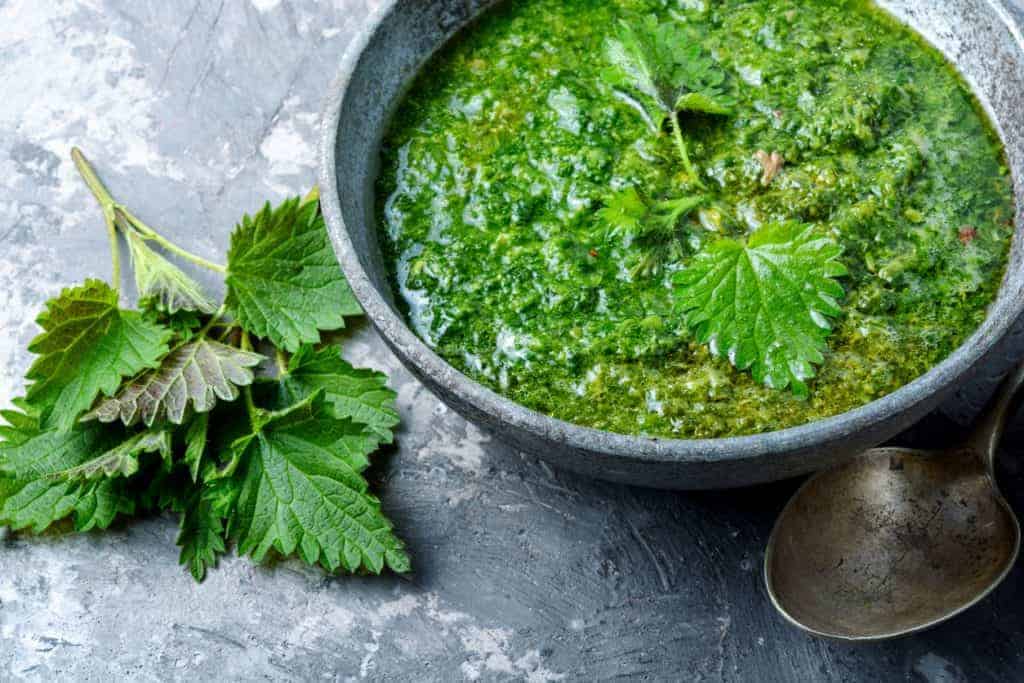
Directions:
- Bring a large pot of water to a boil with 2 teaspoons of salt. Drop in the stinging nettles, and cook 1 to 2 minutes until they soften. This will remove most of the sting. Drain in a colander and rinse with cold water. Trim off any tough stems, then chop coarsely.
- Heat the olive oil in a saucepan over medium-low heat and stir in the onion. Cook the onion until soft and translucent. Stir in the rice, chicken broth and chopped nettles. Bring to a boil, then reduce heat to medium-low, cover, and simmer until the rice is tender, about 15 minutes. Puree the soup with an immersion blender, and season to taste with salt and pepper.
If you can’t find fresh nettles, you can substitute these with 1 heaped tablespoon of dried nettle leaves.
What does it do?
- Reduces blood pressure
- Tones the bladder and kidneys
- Reduces inflammation
- Encourages uric acid secretion, helping to treat gout
- Increases toxin elimination through the kidneys and skin
- Alkalises the body
- Improves digestion
- Relieves allergies such as hay fever
- Reduces joint inflammation
- Stimulates circulation
- Supports the immune system
- Supports normal blood sugar levels
7. Pineapple and Flaxseed Muffins
Pineapple is a sweet, low potassium fruit, making it suitable for CKD suffers. In addition, it is high in essential vitamins, minerals, fibre and bromelain – an enzyme which helps break down protein and reduces inflammation.
Flax is one of the world’s oldest crops. Its Latin name Linum usitatissimum actually means “very useful”, and it certainly is! Due to the anti-inflammatory properties of Omega-3 fatty acids, it has been suggested that they may protect the kidneys from damage in adults. Flax seeds are such a great source of Omega-3s, they are actually what is fed to chickens to produce Omega-3 eggs. The lignans and fibre also possess a myriad of health benefits.
Naturally sweet with no added sugar, and full of health benefits, this recipe proves that even with CKD you can still have your cake and eat it, too.
How to take it:
Ingredients:
- 1/2 cup crushed pineapple with juice, canned
- 1/2 cup finely chopped apples (with peel)
- 2 tablespoons grapeseed or rice bran oil
- 1 large egg, higher omega-3 if available, beaten lightly
- 2 egg whites
- 1 cup light sour cream
- 1/4 cup dark molasses
- 1/2 cup raisins, currants (or any other dried fruit, chopped)
- 1 1/4 cup unbleached white flour
- 1/2 cup whole-wheat flour
- 1 teaspoon baking powder
- 1 teaspoon baking soda
- 1/4 teaspoon salt
- 3/4 cup ground flaxseed
Directions:
- Preheat oven to 400 degrees F or 200 degrees C and line muffin pan with baking paper.
- In large mixing bowl, beat together the pineapple with juice, apples, oil, egg and egg whites, sour cream and molasses until mixture is light and fluffy. Stir in dried fruit.
- In medium bowl, whisk together flours, baking powder, baking soda, salt and flaxseed.
- Add flaxseed mixture to sour cream mixture, beating on low speed just until combined (batter will be a little lumpy). Spoon batter by 1/4 cupful into prepared muffin pan.
- Bake in centre of preheated oven for about 20 minutes or until muffins are golden brown.
What does it do?
- Reduces the risk of cancer, particularly hormone dependent cancers such as breast cancer
- Protects against heart disease
- Helps maintain healthy cholesterol levels
- Can help improve blood sugar levels in Type 2 Diabetics
- Is an anti-inflammatory
- Reduces hot flushes in menopause
- Provides immune support
- Supports healthy blood pressure
- Has kidney protecting properties
- Supports bone health
- Supports eye health
To sum it all up…
I hope you can all get some enjoyment out of adding these remedies into your life. I know I have enjoyed researching and making them! There is no miracle cure for any type of disease, but the cumulative effect of all the small things can make a big difference over time. If you also make a concerted effort to reduce or eliminate the things that are having a negative effect on your life and replace them with foods and practices that do the opposite, you will make a significant difference quite quickly. The more changes you make, the better the chances of stopping the progression of chronic kidney disease.
Try keeping a food journal for a week, as we are often so used to our habits that we do not realise what we are doing that might be contributing to the decline of health or predisposing us to risk factors. It is NEVER too late to take your health into your own hands. If you are under medical care, why not share these ideas with your doctor or specialist? They might just ask you for the recipes!
Share This Article
More articles by
Duncan Capicchiano N.D.
LIKE WHAT YOU’VE READ?
Sign up for free updates delivered to your inbox. Join our community and get tips on health, wellness, nutrition, and more.
More From Our Blog
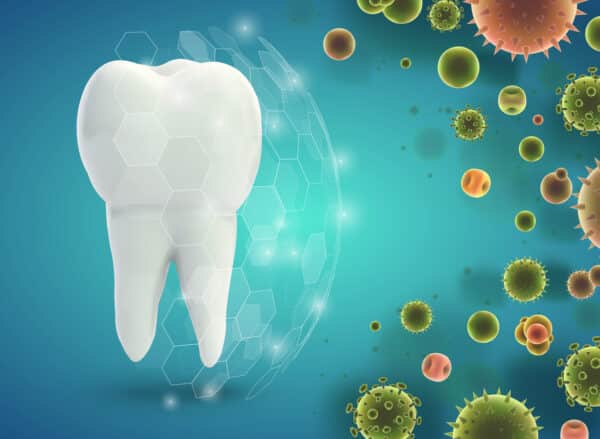
The Oral Microbiome & Chronic Kidney Disease
The oral microbiome plays an essential role in the incidence and development of
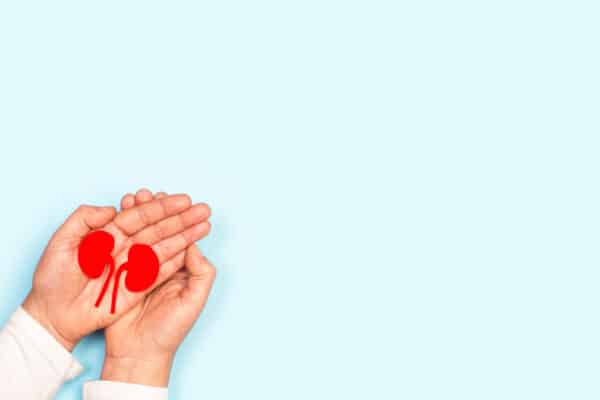
Natural Therapies In The Treatment of Polycystic Kidney Disease
Regarding dietary interventions in treating and managing PKD, the science is solid. The
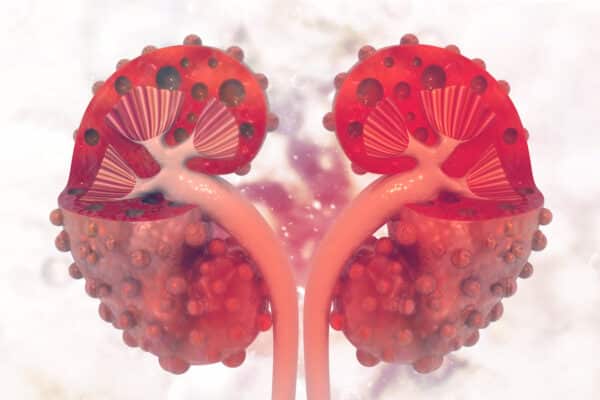
What Causes Cyst Formation In Polycystic Kidney Disease?
What is polycystic kidney disease? Polycystic kidney disease (PKD) is a prevalent genetic
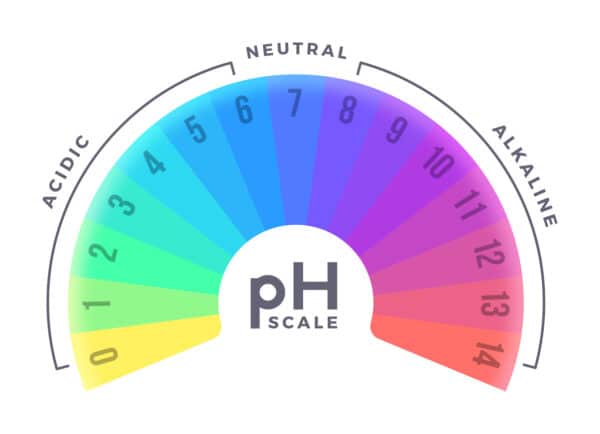
Bicarbonate Supplements? Is It The Best Way To Alkalize in Kidney Disease?
Throughout the ages, human diets have undergone a significant transformation, shifting from an
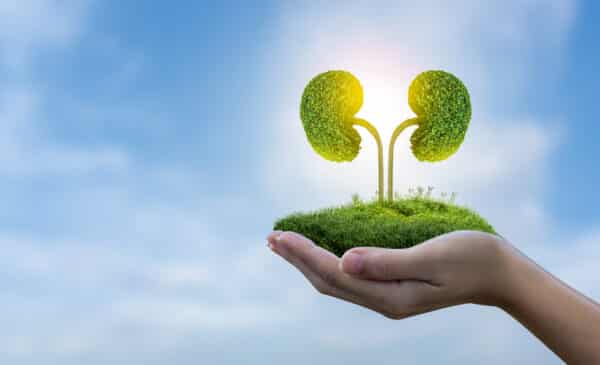
The Big Question… Can Kidney Disease Be Reversed?
Kidney disease can range from mild to severe, so the potential for reversal

SS-31 Peptide and Kidney Disease
Kidney disease is a global health concern. The kidneys, especially the proximal tubules,


